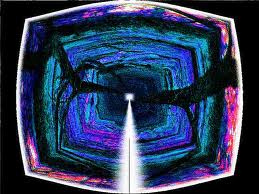
The Temple modeled after the Biblical myth tabernacle in the desert is the product of imagination. In a wonderfully paradoxical set of mystical texts, Bezalel, the master craftsman of the book of Exodus, receives no clear blueprint from God or Moses on how to build the tabernacle. And yet he builds it in accordance with “God’s will.” For the Kabbalists, this is a hidden allusion to the power of holy imagination to intuit cosmic truth.
When the mystics suggest that Bezalel is “taught by God,” they speak in code. The artist is “wise of heart,” “filled with the spirit of wisdom, intuition and intimate understanding.” All of these draw their inspiration from the breath of divine imagination.
Dr. Marc Gafni
The Erotic and the Holy
